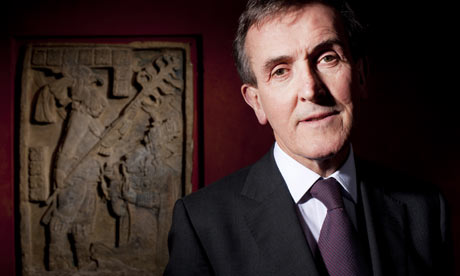Yes, that’s me. While I love to learn and recently went to a real educational institution and got a real degree, Bachelor of Science, I’m also very lazy. So studying at uni is not my preferred way to acquire new knowledge. And as much as I love to read and also do read non-fiction every other time I pick up a book, my preferred way of acquiring new knowledge is by listening to podcasts. I know I’ve mentioned this a number of times before, but I have the feeling I’m not really getting through to you. Do you realise what FANTABULOUS stuff you can download and listen to FOR FREE out there?
Yesterday, I got a letter from our television supplier TDC. It was a “special offer” of an extra television package at 148 DKR per month. That’s around 17£. For this exorbitant amount of money I would get – what exactly? 10 or so cr*p channels offering nothing but US television series reruns, again-again showings of action films, “talent” shows and of course heaps of reality shows. No BBC, nothing even remotely interesting to neither me nor junior.
But right here on my computer I find hours, days, months if not years of free (and completely legal, I should say) entertainment. I can watch, read and listen. And learn. And that’s what I love most. I really wish I’d loved learning as much when I was younger. I could have become a polymath by now!
I subscribe to a number of podcasts, but unfortunately I never seem to have time enough to listen to all of them. Maybe if I had to do a lot of long haul flights? My favourite subject is clearly history, which seems to lend itself so perfectly to the podcast format. I subscribe to Melvyn Bragg’s hour-long discussions with scholars on historic persons or episodes. Always interesting and very well made. And to the Danish Alle Tiders Historie (A History of All Times). But my all time favourite is a collaboration between British Museum and British Radio 4, A History of the World in a 100 Objects. It consists of one hundred 15-minute podcasts covering all of human history. It is the brainchild of the absolutely fantastic and admirable director of the

British Museum, Neil MacGregor. He must be one of the world’s most inspirational museum directors and he actually narrates most of this fantastic series himself. I love how his favourite expressions slowly emerge as you hear more and more of the programmes. If you start listening, wait for the first time he says “the business end of (…)”. It makes me giggle.
Did you know that the first depiction of a couple making love dates back 11,000 years? (Take that, creationists). Well, I sure didn’t. Or that an intricate, glittering gold cape was dug out of the ground in North Wales in 1833? Or how much you can read out of the Egyptian Pharaoh Den’s sandal label?
I also subscribe to podcasts about medicine, sociology, psychology and technology. My favourite technology programme is actually the Danish Harddisken, which is very versatile and reminds me more of the magazine Wired than of any other podcasts. And that’s a compliment. Wired is the only magazine I read after I’ve had to give up on Vanity Fair for two reasons. One, that I simply don’t seem to have time enough to read it, and two, that I’ve found it more and more about showbiz and less about political and cultural matters. My only, but serious, objection to Harddisken (as it is to Wired) is the lack of women involved in making and presenting the programme. I find it very, very hard to believe that there are really so few women out there with anything interesting or important to contribute. I tend to believe that it’s habit and laziness that bring (the same) men to the microphones again and again.
If you have a phone that supports it you can also watch video podcasts or you can watch them on your computer. I don’t watch many video podcasts, but when I do it’s invariably from TED. The last one I’ve enjoyed was this one about mistaken beliefs – seeing patterns that aren’t there.
TAK, Néné.